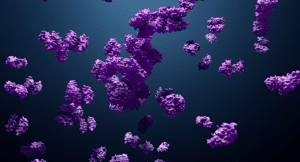Generate Biomedicines, based in Massachusetts, achieves a groundbreaking leap in protein design with the development of an artificial intelligence (AI) system poised to transform the field. The breakthrough is in the shape of Chroma, a sophisticated artificial intelligence system that can forecast possible functions of proteins in addition to producing workable protein structures.

The publication “Illuminating protein space with a programmable generative model,” which was published in the esteemed journal Nature, illustrates Chroma’s potential and the advancements it brings about in the field of protein engineering. As the basic building elements of all living things, proteins regulate a wide range of vital processes. Most pharmacological medications target proteins in the body; in addition, many medications are proteins or are derived from proteins.
Chroma’s versatility originates from its capacity to produce a wide range of proteins with specific characteristics. Since proteins are essential for therapeutic interventions, the pharmaceutical industry could benefit greatly from this capability. The ability to design new proteins with certain qualities opens up new therapeutic targets and has the potential to completely change the drug development process.
The effects go beyond new targets for drugs. More adaptability in protein design could lead to improved safety and effectiveness of already available medications. Not only that, but the AI-guided technique targets hitherto elusive and “undruggable” protein targets, opening opportunities to treat diseases that were previously incurable.
Generate Biomedicines’ breakthrough marks a pivotal moment in the intersection of AI and molecular biology, heralding a new era where technology empowers the development of proteins tailored to precise therapeutic requirements. Chroma’s revolutionary potential provides a window into a future in which AI-guided protein design is a fundamental component of cutting-edge medication discovery and development.
Generate Biomedicines’ Chroma offers a completely new degree of programmability in addition to breaking new ground in protein design. Researchers can use Chroma as a flexible tool by specifying a wide range of attributes, from inter-residue distances to semantic definitions using classifiers.

Chroma’s effectiveness was assessed through extensive experimental validation, assessing its capacity to produce protein designs that demonstrated stable folding and structural conformance to the original design in addition to good expression. As a conservative estimate, Chroma produced defined and purified proteins with an astounding success rate of about 3%. This demonstrates its competence in producing proteins with various structures and characteristics, managing complex shapes, and producing effective designs, highlighting its potential in customized protein engineering.
The importance of Chroma’s skills goes beyond solving the problem of “undruggable” diseases, in which intricate protein targets are resistant to standard pharmaceutical treatments. By reverse engineering the necessary characteristics for binding with these elusive targets, Chroma provides a novel strategy that paves the way for future therapeutic interventions for a variety of illnesses. Right now, the work entails creating a variety of viable protein structures and then finding possible target matches.
What makes Chroma unique is its capacity to reorient the emphasis from just designing workable protein structures to giving priority to a protein’s intended functionality. This creates new opportunities for finely customized protein engineering by compelling the structural formation to line up with the intended function. The potential applications of Chroma’s programmability are set to revolutionize the field of protein design by providing researchers with a revolutionary tool for exploring new avenues in therapeutic development.




